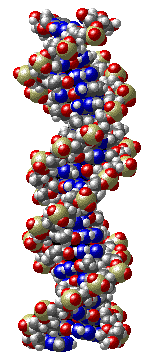Problem Sets & Tutorials

Chemistry of Life
Chemistry Review the basics of chemistry you'll need to know to study biology.Large Molecules Learn about structures and properties of sugars, lipids, amino acids, and nucleotides, as well as macromolecules including proteins, nucleic acids and polysaccharides.
Acids & Bases Learn about the solvent properties of water, pH, pKa and buffering capacity.
Clinical Correlates of pH Levels Learn how metabolic acidosis or alkalosis can arise and how these conditions shift the bicarbonate equilibrium. The body's compensatory mechanisms and treatment options are also discussed.
 B12/Folate Learn which biological reactions require either B12 or folate (or both); what the consequences of a deficiency in either vitamin are, and
the important step in which B12 and folate metabolism overlap.
B12/Folate Learn which biological reactions require either B12 or folate (or both); what the consequences of a deficiency in either vitamin are, and
the important step in which B12 and folate metabolism overlap.
Energy Reactions
Energy, Enzymes, and Catalysis Familiarize yourself with some key principles about enzymes, catalysis, and energy that are central to a subsequent study of metabolic pathways.Metabolism Develop a basic understanding of some of the fundamental concepts of metabolism
 Carbohydrate Metabolism Regulation Learn about the regulation of carbohydrate metabolism by insulin, glucagon and epinephrine, mainly in liver and muscle.
Carbohydrate Metabolism Regulation Learn about the regulation of carbohydrate metabolism by insulin, glucagon and epinephrine, mainly in liver and muscle.
Photosynthesis 1 Study the conversion of light energy into different forms of chemical energy during photosynthesis.
Photosynthesis 2 Review the location and overall reactions of carbohydrate biosynthesis during photosynthesis, and understand the metabolic differences between C3 and C4 plants.
Molecular Visualization Activities
Setting up for the Molecular Visualization Activities The web activities listed below are used in conjuction with educational software for molecular visualization and require a special setup for web browsers. This "Setting up" section offers more information on this software and how to configure browsers for these activities.
Using Computers to Explore DNA Structure Use Biology Project materials in conjunction with molecular visualization software to explore the double helical structure of DNA in 3D, make measurements, and look at views that emphasize special features of the structure.
Using Computers to Study Molecular Structure Enhance your study of the properties and structures of biological molecules with modern computer graphics.
WWW Resources
Biochemical Learning Resources at the University of Leeds in England has several interactive lessons in biochemistry, including topics such as monosaccharides, glycolysis, and protein synthesis.
Entrez, provided by the National Center for Biotechnology Information, is a thorough WWW resource worth exploring.
University of Arizona
December 6, 1999
Contact the Development Team
http://www.biology.arizona.edu
All contents copyright © 1996-9. All rights reserved.

